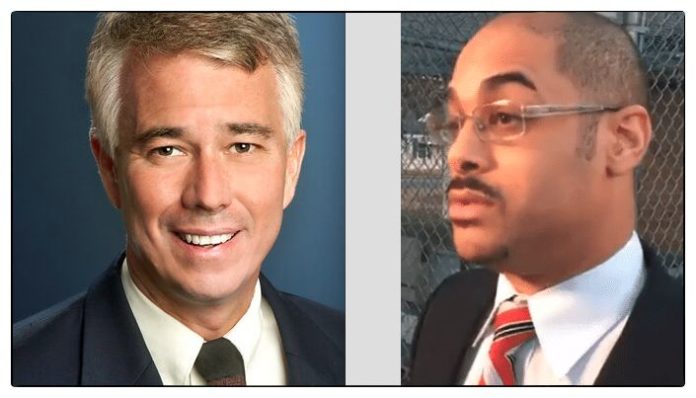A campaign finance report filed by a major backer of instant runoff voting has some decrying the election on the November ballot issue as “bought by outside interests.”
Not so, say supporters of Save IRV, Inc., who counter that those voicing the claim are “looking for an excuse” for why the effort to repeal IRV failed in the last election.
Shelby County Commissioner Edmund Ford Jr., who served on the Memphis City Council at the time of the election, points to a campaign finance report filed with the Shelby County Election Commission by Save IRV, Inc. It shows most of the money raised from Oct. 1-Oct. 27 (2018) by the organization was from sources outside the state, in Ford’s estimation 94 percent.
“The election was essentially bought by outside interests,” said Ford on Thursday.
IRV is where voters rank their candidate choices, making runoff elections unnecessary. The ordinance establishing IRV was first approved in 2008 but has not been tried yet in an election in Shelby County. A measure that would have done away with Instant Runoff Voting (IRV) was on the November ballot and it failed.
The Memphis City Council pushed hard to have the IRV ordinance repealed.
“This play has been run in other cities and states,” where IRV has been implemented, Ford said on Thursday. “I warned the local media about this and now you have the facts in front of you.”
According to the campaign finance report, the outside donations to Save IRV included $100,000 from the Action Now Initiative, of Houston, Tex., in two contributions; $25,000 from Cantillon Capital Management of New York City; $10,000 from U.S. Term Limits of Washington, D.C. and $1,500 from Voter Choice of Boston.
Steve Mulroy, a prominent volunteer and spokesman for Save IRV, Inc., said his organization’s efforts in the election were funded by “a combination of grants and local fundraising.
“We had lots of donations from ordinary individuals, small donations,” he said. “Then there were grants from national election reform organizations.”
Ford, said Mulroy, is “looking for an excuse” for why his effort to repeal IRV failed in the last election.
Save IRV, Inc. knocked on doors, made phone calls, spoke at community meetings and did other things to reach average voters that either had not heard of IRV or were fine with the idea, he said.
“He’s (Ford) trying to somehow make it seem like it’s not the will of Memphis voters and I just think it’s condescending to Memphis voters,” Mulroy said. “You can quibble all you want. The conclusion has to be that Memphis voters want IRV.”
Aaron Fowles, president of Save IRV, said the organization’s canvassing efforts showed that ordinary voters supported the measure and that “it sounded reasonable to them.” It was controversial among political insiders and politicians, he said.
“It wasn’t a big civil war among rank and file voters. …Most voters had not heard of it or were OK with it.”
Fowles said the blue wave people are talking about in national politics was largely funded by out-of-state money, adding that there were no strings attached on how the money his group received was spent.
“We had autonomy over the money,” he said. “The local actors were unpaid…”
Save IRV did not use taxpayer money, “while they (detractors of IRV) went to that well several times,” said Fowles, a reference about the Memphis City Council providing $40,000 in funding to educate and sway voters concerning IRV.
Mulroy said that in its filing with the Election Commission, the Memphis City Council 2018 Referendum Committee acknowledged it paid for ads in the local media – not just to educate but to urge voters to vote yes to repealing IRV.
That council-approved funding went to reimburse campaign work that was done before Oct. 23, Mulroy said, adding that the funds were funneled through Diversity Memphis PACT to give voters the impression that the money funding the campaign was from a private group.
Attorney Allan Wade, who represents the council, said no effort was made to deceive the public. “Everything we did was legal and in order.”
Wade said he reviewed the campaign finance report filed by Save IRV.
“It’s pretty obvious, from this document, that it’s funded by people who don’t have the interest of the black voters at heart.
“…This thing was being touted by people outside our city that do not have the best interest of the African-American community at heart,” he said. “It’s disingenuous for them (Save IRV) to criticize the council for getting an alternative message out when they were being funded by external donors.”
Former Interim Mayor and Memphis City Council Chairman Emeritus Myron Lowery chaired the Charter Commission that 10 years ago approved IRV among the referendums it discussed.
“It’s sour grapes to say outside money influenced this,” he said. “…To say out of town money helped, it wasn’t here 10 years ago when the recommendations were made.”
Lowery said he came out in favor of IRV because, “it’s not been tested in the Memphis community.
“I did not see the point in repealing something to operate in the Memphis community because some politicians were afraid of the outcome,” he said.
“(Now) we’ve got to see if it’s going to work.”




